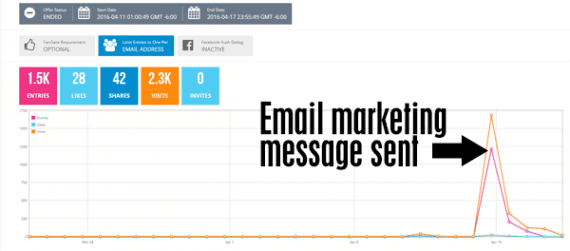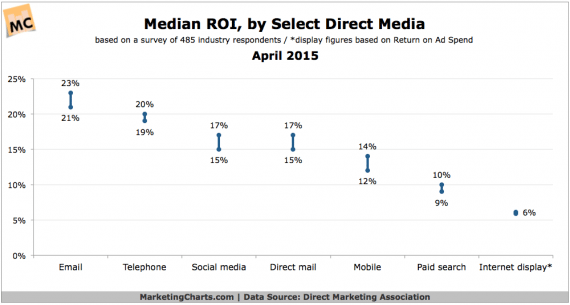9 Ecommerce Marketing Skills That Will Lead to Success
The success of ecommerce marketing can come unexpected. Nonetheless, having the right ecommerce marketing skills can contribute to success.
From pay-per-click advertising to blogging and search engine optimization to analytics, e-commerce marketing is broad, diverse, and potentially complex. The goal is to find the activities, promotions, and tactics that will generate profits.
Five years ago, Practical Ecommerce published an article describing the skills that are critical for an ecommerce entrepreneur. The suggestions may have been counter-intuitive: be able to write, learn, and be a skilled listener. These skills were about the strategic skills that entrepreneurs need.
Building on those skills, here are a number of tactical skills that should help your ecommerce marketing succeed.
1. Writing, content marketing
The ability to write is essentially the ability to communicate online. Every ecommerce product description, blog post, how-to article, about us page, video script is an act of writing. Well done, the writing will help move your ecommerce marketing forward. Done badly it will cause laughter and embarrassment.
An example should clarify it. This message was sent to thousands of subscribers to help sell a retailer called “Sizzling Saturday”.
“If you’ve been waiting for the best spring year, your patience pays off! at [name of retailer removed] it rustles [sic] Saturday this weekend, and you can save a lot for just one day! Also take a look at the one-week savings! “
Clear writing is a prerequisite for e-commerce marketing to be successful.
2. Data analysis, analytics
Successful marketers study facts and statistics in order to make good decisions about investing in marketing and advertising. This ability to take into account facts and understand the effects of statistics is known as data analysis. It’s important to modern ecommerce marketing.
In a November 2015 article on how difficult it can be to quantify the impact marketing research has on a company, the Harvard Business Review reports three observations:
- According to a survey, companies plan to increase their investment in marketing analytics by 73 percent over the next three years;
- Data analysis impacts many areas of marketing, including customer acquisition, marketing mix, customer loyalty, social media, segmentation, and advertising strategy;
- Marketing organizations are not as effective as they should be at processing data.
Those ecommerce marketers who can use and understand data more effectively are more likely to be successful.
3. Tests and data collection
Closely related to the interpretation and analysis of data is the ability to collect facts and statistics about your company’s marketing performance.
This marketing skill includes the ability to properly set up Google Analytics or something similar and optimize it with specific, meaningful reports for your e-commerce business. This includes understanding how testing works and using test platforms such as Optimizely or similar. It also includes the ability to discover data from any software package your company uses – such as sales data, email reports, or order management.

In this example, by measuring or gathering information about when entrants entered a contest, it is easy to see the impact email marketing has had. Hence, monitoring campaign performance can lead to better decisions in future campaigns.
If you can gather good information about your marketing’s performance, the more likely you will make good decisions based on that information.
4. Design
Graphic and website design are the foundations of online marketing. The look of an ad, item, or even a product detail page can have a significant impact on how the marketing message or even the product is perceived.

Filson is a great example of a company that uses design to support their brand.
“Campaigns are about raising the profile of brands or moving customers in a certain direction to buy a company’s products or services,” wrote Liz Alton in a 2013 HubSpot blog post. “One of the key elements to get people to buy is trust. Brands are essentially the way customers code a particular offer in their minds: that brand represents quality and luxury, or that brand represents comfort and value.
Alton continued, “Whatever your target customers value most, a brand is an abbreviation for it. Any creative you post – blog posts, brochures, Google PPC campaigns, or Nimlok booths at trade shows – says something about a brand. If the design is less professional and focused on the brand’s core message, it can undermine years of work and good impressions. Good design, on the other hand, speaks volumes for the professionalism, quality and positioning of a company in the market. “
What your website, ads, and branding materials look like is critical to ecommerce success.
5. Development
The ability to write code can be a huge asset for marketers. This skill can be as fundamental as understanding HTML and CSS so that you can better publish articles in WordPress. Or it could be the opportunity to develop your own marketing tools and reports.
By some estimates, half of all jobs in digital marketing require at least some technical expertise. It does so because much of what is done online requires at least an understanding of the coding.
Learn to code and be in control of your marketing. The more control you have, the greater your chances of success.
6. Advertising
Ecommerce advertising needs to be planned, created, bought, executed and measured. And it needs to be done on many channels and using many forms of media, including pay-per-click advertising on search engines and on social media sites, display advertising, native advertising, mobile advertising, video advertising, and more.
The effective ecommerce marketer understands how advertising works and strives to get the best possible return on investment.
Ad management is a high-end marketing skill that can take a long time to learn and even longer to master. But it’s worth it. Advertising can increase sales and profits.
7. Email Marketing
To paraphrase the Direct Marketing Association, you can define an email address online. It’s your digital name to some extent, and email marketing can be one of the best ways to reach ecommerce customers. You can communicate directly with consumers who know your business and are interested in your products.
In fact, a survey by the Direct Marketing Association of digital marketers found that many believe that email marketing is actually the most effective marketing tool.

A survey by the Direct Marketing Association found that many marketers believe email offers the best return on investment.
Learning to market effectively via email is possibly the best thing you can do for your ecommerce marketing.
8. Marketing Automation
Marketing automation can reduce marketing spend, increase conversion rates, increase average order value, and in some cases even improve the shopping experience.
As a skill, Marketing Automation is about managing the processes and workflows in an automation platform such as Marketo, Infusionsoft or even MailChimp.
For your ecommerce marketing, find and master the automation tools that will work for your business.
9. Search engine optimization
Search engine optimization is the process that allows web crawlers to access your web pages and easily index them. The idea is that if Google, Bing, and other search engines can easily find and catalog what’s on your page, then your website will be more easily listed on the appropriate results pages.
The SEO goal is not to trick search engines with fake content or keyword stuffing, but rather to help search engines find and understand your content.
Well done, SEO helps make your website easy to find, which can lead to marketing success.

